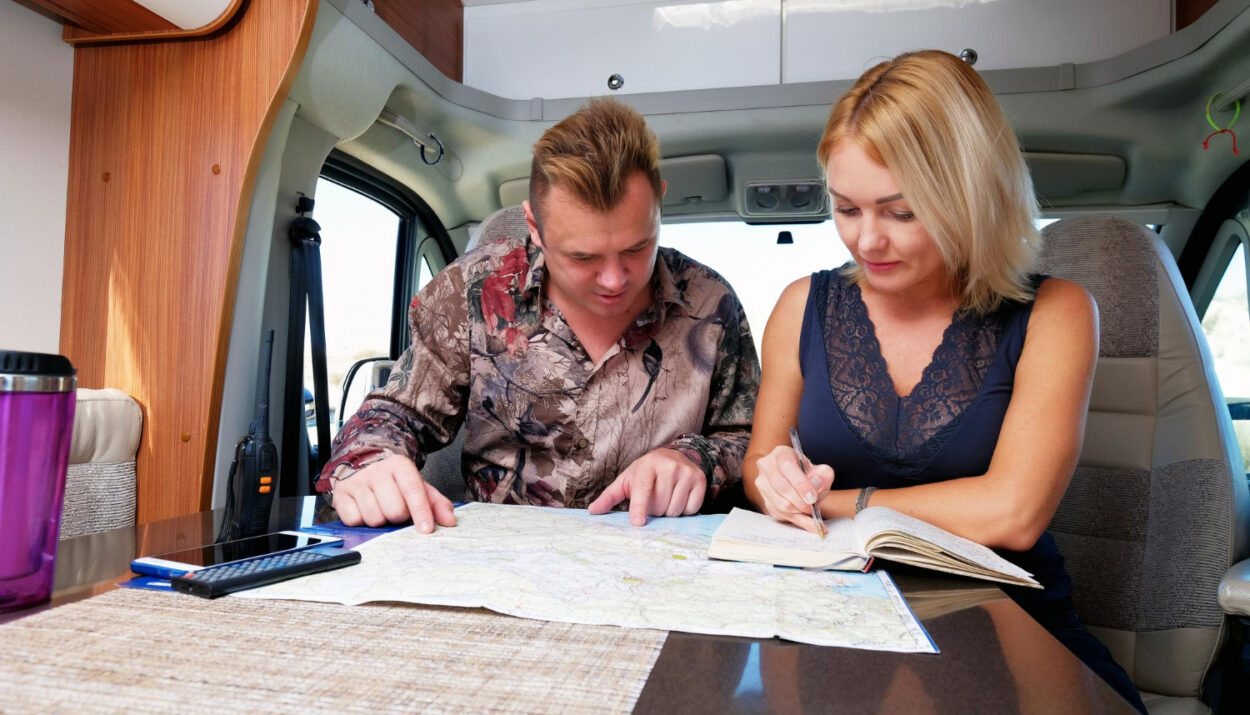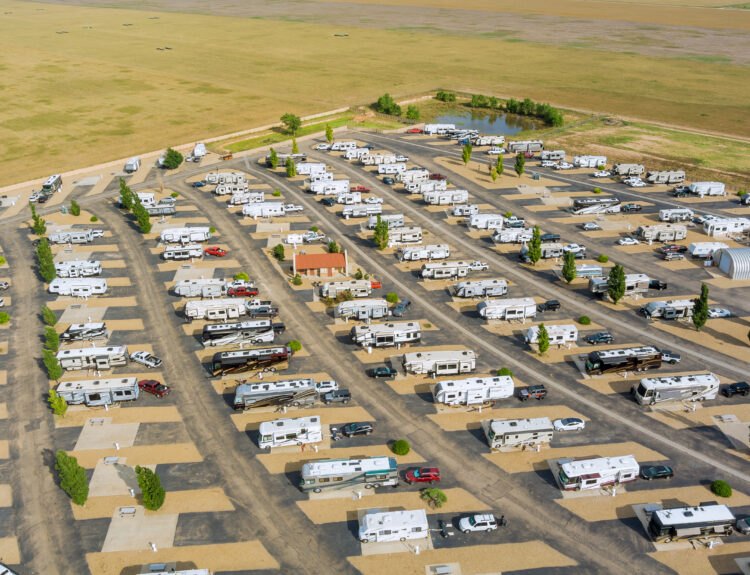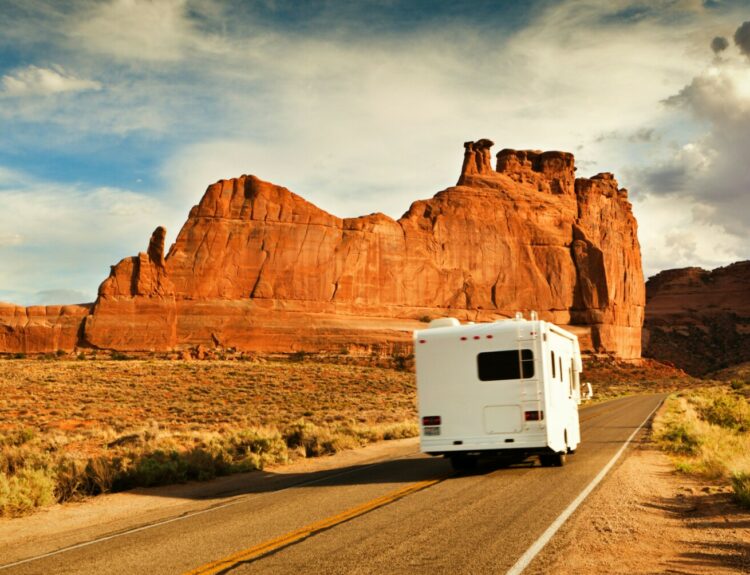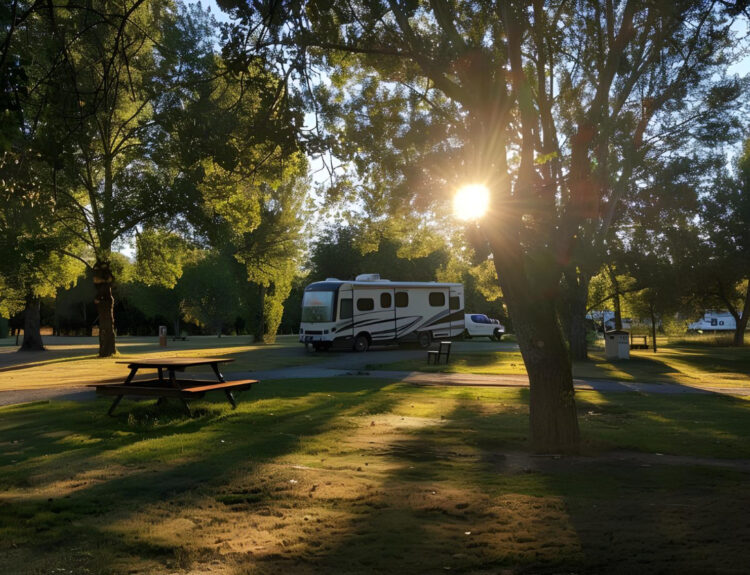The outdoor hospitality industry has grown a lot over the last decade. RV parks, glamping sites, and campgrounds have become very attractive real estate investments. As this industry continues to boom, financing has become a key driver for acquisitions and developments in the sector. With investors flocking to capitalize on high margins and stable cash flows, securing a loan is one of the first—and most critical—steps in growing a successful outdoor hospitality business.
For those interested in entering or expanding within this space, working with a lender who understands the unique nuances of outdoor hospitality is essential. The right financing can be a game-changer for your business, says Moe Kruger, Senior Loan Officer at Live Oak Bank.
Why Banks Prioritize Strong Loan Applications
Mitigating Risk for Banks
Banks prioritize strong loan applications to protect their capital and minimize the risk of non-repayment. A solid loan application presents a bank with a project that demonstrates a high probability of success and repayment. To achieve this, lenders focus on:
- Strong Cash Flow: Projects must show a reliable cash flow that can cover loan payments.
- Stable Market Demand: A healthy occupancy rate and competitive market positioning help validate the profitability of the project.
- Solid Borrower Profile: A track record of financial responsibility and successful business management increases the likelihood of loan approval.

Key Factors for a Successful Outdoor Hospitality Loan Application
A Strong Project Location
Location is a critical factor when banks evaluate outdoor hospitality loan applications. Moreover, campgrounds, RV parks, and glamping sites must be in areas that are easily accessible, attractive to tourists, and aligned with favorable demographic trends.
- Accessibility: The site should be easily reachable by major highways or routes.
- Guest Demand: Consider the proximity to tourist attractions or natural beauty that will draw visitors.
- Demographics: An understanding of your target market and their preferences is essential to forecasting occupancy rates.
Modern Amenities and Well-Maintained Facilities
Successful outdoor hospitality ventures offer more than just a place to stay—they offer an experience. Therefore, banks look for properties that are well-maintained, provide modern amenities, and have a range of activities that enhance the guest experience.
- Updated Amenities: Campgrounds with updated facilities such as Wi-Fi, recreational activities, and well-maintained utilities are more attractive to both guests and lenders.
- Guest Satisfaction: Clean, well-kept sites with attractive landscaping are more likely to generate repeat business and high occupancy rates.
Financial health and growth potential
When banks evaluate loan applications, they consider both the historical financial performance and future revenue projections. Moreover, a solid financial foundation reassures lenders that the project can repay the loan, and an analysis of the competitive landscape provides insight into long-term growth potential.
- Historical Occupancy Rates: A track record of high occupancy levels shows consistent demand.
- Market Analysis: Competitive pricing and a clear understanding of the local market are crucial to developing a sustainable pricing strategy.
- Opportunities for Growth: Projects that demonstrate potential for revenue growth, such as increased rates or enhanced services, are more attractive to lenders.

Borrower Experience and Financial Management
Your experience as a borrower is just as important as the strength of the project itself. Moreover, lenders place significant emphasis on the borrower’s ability to manage the business, maintain profitability, and navigate the complexities of the outdoor hospitality industry.
- Proven Track Record: Experience in managing RV parks, campgrounds, or similar ventures strengthens your loan application.
- Financial Skills: Strong financial acumen, such as budget management and cost control, is critical for maintaining the profitability of your business.
The Importance of a Well-Crafted Business Plan
Developing a Roadmap for Success
A detailed and well-prepared business plan is crucial to securing a loan for your outdoor hospitality project. Therefore, your business plan should showcase the viability of your venture and highlight your vision, strategy, and understanding of the industry.
- Revenue projections: Include realistic estimates of your revenue based on occupancy rates, rental income, and other sources of income.
- Expense Management: Clearly outline projected expenses, including maintenance, utilities, staffing, and insurance.
- Exit Strategy: Banks appreciate a strategic exit plan that demonstrates long-term thinking, such as selling the park or refinancing the loan.
Moe Kruger advises, “Think of your business plan as a roadmap that guides the entire process of building and running your RV park, campground, or glamping site.”

Download Live Oak Bank’s free Business Plan Template
Acquisition vs. New Development: What Lenders Look For
Acquisition Loans: Leveraging Historical Data
For acquisition loans, banks will typically rely on the seller’s historical financial data to assess the project’s potential. They may also consider borrower-prepared projections to see how the facility can improve under new management.
- Seller’s Historical Financials: These offer insight into the facility’s past performance and help gauge future cash flow.
- Market Rate Adjustments: If the current owner has lagged in adjusting rental rates to match the local market, your projections should demonstrate how you plan to align them with industry standards.
How feasibility studies can help
New development loans require more due diligence from banks, as these projects come with higher risk due to the lack of historical financial performance. Therefore, feasibility studies play a vital role.
- Confirming Market Demand: A feasibility study will analyze the local market to ensure there is sufficient demand for a new facility.
- Assessing Competition: The study should evaluate competing projects and check for any new developments that may affect future occupancy rates.
- Financial Projections: Detailed projections will help lenders assess whether the new facility can generate sufficient cash flow to cover debt payments.
The Importance of a Strong Borrower Profile
The Role of a Personal Guarantor
Often, banks require a personal guarantor to back the loan. A strong guarantor enhances the application by providing additional financial security and demonstrating expertise in the industry.
- Credit Report: A high credit score and clean credit report show financial responsibility and strengthen the application.
- Personal Financial Statement: Guarantors with strong liquidity and a higher net worth are viewed more favorably by banks.
- Experience and Expertise: A successful track record in managing RV parks, campgrounds, or similar ventures lends credibility and demonstrates a higher chance of success.
Partnering with the Right Lender
Live Oak Bank: Experts in Outdoor Hospitality Loans
When applying for a loan in the outdoor hospitality sector, partnering with a lender who understands the industry is crucial. Live Oak Bank specializes in providing loans for RV parks, glamping sites, and campgrounds. With a team of experts, including Moe Kruger, Senior Loan Officer for RV Parks, the bank offers valuable guidance and support throughout the loan application process.
Live Oak Bank’s industry expertise allows them to offer flexible financing options tailored to the specific needs of outdoor hospitality projects. By building a strong partnership with your lender, you increase your chances of securing the right loan and setting your business up for long-term success.
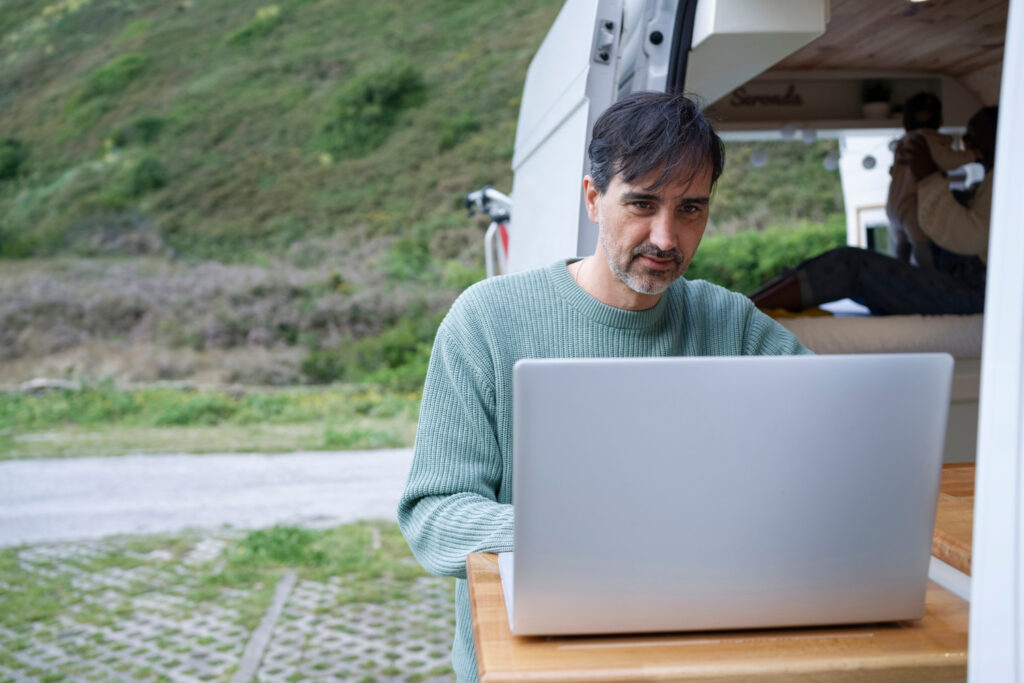
Frequently Asked Questions
1. What makes camping management projects attractive to lenders?
Lenders, such as Live Oak Bank, look for projects with strong cash flow, market demand, and a well-prepared business plan that outlines financial projections and growth potential.
2. How can I improve my chances of getting a bank loan for my campground?
A well-crafted business plan, a solid financial track record, and a strong borrower profile, including experience in outdoor hospitality, will improve your chances of loan approval.
3. What is the role of a personal guarantor in outdoor hospitality loans?
A personal guarantor provides additional financial security for the loan, showing lenders that they can rely on the guarantor’s financial backing and industry expertise.
4. How important is a feasibility study for new development projects?
A feasibility study is essential for new development loans, as it helps confirm market demand, assesses competition, and provides financial projections to support the loan application.
5. Why should I choose Live Oak Bank for my outdoor hospitality loan?
Live Oak Bank specializes in outdoor hospitality loans and offers expert guidance, industry-specific financing options, and a dedicated team to help ensure the success of your project.
For more insights on how to thrive in the campground industry, keep reading our blog.

